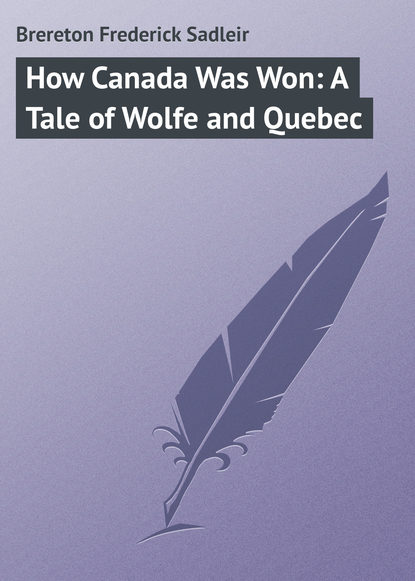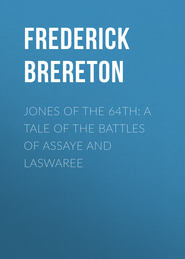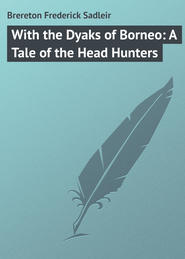По всем вопросам обращайтесь на: info@litportal.ru
(©) 2003-2024.
✖
How Canada Was Won: A Tale of Wolfe and Quebec
Настройки чтения
Размер шрифта
Высота строк
Поля
Valuable months had been wasted, and the projected descent on the formidable French fortress had ended in fiasco. But Loudon cannot be blamed alone for such a result. If reinforcements had been collected earlier and despatched without delay, they would have reached Cape Breton Isle before the French fleet put in an appearance. It was this delay, together with the prompt crossing of the Atlantic by the French fleet, which caused the expedition to be countermanded. But we lost far more than valuable time and money in this useless movement. By withdrawing his troops from America proper to Halifax, Loudon left the disputed country south of the great lakes and west of the line drawn north from the Alleghany mountains almost denuded of men. There were some three to four thousand to hold this huge country, a force insufficient even to keep back the French in the neighbourhood of Lake St. George, if they wished to press south in that direction.
It may readily be seen that Loudon was guilty of a serious error in thus denuding an important stretch of country, and it may equally be anticipated that the French were quick to take advantage of the withdrawal of our soldiers. Montcalm had been busily gathering Indians from far-off portions of Canada, Indians attracted to the French after their victory at Oswego. These, with numerous regulars and Canadians, he poured down the Richelieu river, massing them at Ticonderoga, till he had nearly 8000 there. Some forty different Indian tribes were represented, and if the native element had been cruel and bloodthirsty before, it promised to be even more so now. For these sons of Canada who crowded the huts at Ticonderoga were pure savages, vastly impressed by the French, and more than ever eager to join in this fray now that they had heard the tales of their brethren who had been already engaged.
On the British side General Webb, who had been left in command in this area, had some 1600 troops in Fort Edward, while Munroe had two thousand five hundred in Fort William Henry, or encamped in its immediate neighbourhood. This latter force was surrounded by the huge numbers at the disposal of Montcalm, and prepared to defend itself as well as possible. The French had forty guns, and made no active attempt upon the place till these were in position. Then, at a range of two hundred yards, they opened such a fire that the fortifications were splintered and flying in fragments before many hours had passed. Munroe and his men made a gallant defence, but their ammunition soon began to run out, while some of their cannon burst. They attempted two sorties, which were repulsed, and waited in vain for some action on the part of Webb and his men at Fort Edward. But no one came to help them, and finally, when some hundred and fifty of the defenders had fallen, Munroe agreed to surrender, further resistance being useless. Terms were arranged, the garrison to march out with the honours of war, and to proceed under escort to Fort Edward, there to remain till they should be exchanged.
What followed will for ever be a stain on the annals of New France and a warning to all who employ the help of such ruffians as the Indians had already proved themselves to be. The numerous braves with Montcalm, accustomed to murder all their prisoners, seemed to think that these men who had surrendered were theirs, with whom they thought they could do as they wished. They were already nearly out of hand, and as an earnest of what was coming, the miscreants promptly slaughtered a dozen or more unfortunate fellows who from illness or wounds had been left in the hospital. On the following morning the British troops were to set out under escort, and seventeen more unfortunate and helpless men were slaughtered by the Indians in the sight of Canadian officers, who did not even venture to remonstrate. Indeed, the Canadians engaged in this war looked upon the methods and desires of the Indians with favour. They considered that the scalps of the enemy were the natural reward for the services of these miscreants, and there is not a shadow of doubt that at the surrender of Fort William Henry they were, with few exceptions, if not actively sympathetic with the Indians, at least callous onlookers at a tragedy to which energy on their part could have put a summary end. Be that as it may, the march had no sooner begun than the Indians got completely out of hand. Montcalm, in place of drawing a cordon of his regulars around the prisoners, endeavoured to arrest the excitement by his own unaided efforts. Almost at once the war-whoop sounded, and in a few seconds the howling demons were busy amongst the prisoners, tomahawking them, or dragging them into the forest to slaughter at their leisure when opportunity offered. It was a horrible exhibition of cruelty and inhumanity, and it is a wonder that, seeing the helpless methods adopted, Montcalm and his officers contrived to save a single one of the unfortunates who had surrendered to them. Perhaps a hundred were slain, and some six hundred carried off, of whom about half were returned on heavy payment. The remainder were taken away by the Indians on the following day, and who knows what happened to them? Suffice it to say that this disgraceful and cruel affair shocked all who heard of it, and raised such a storm of feeling in the breasts of all who boasted British blood, that "Remember Fort William Henry" became the cry of our soldiers in the future, and when the opportunity came they remembered. The trigger finger which in days before might have been steadied and withdrawn pressed sternly and without mercy in the future. The Canadian who begged for his life, had to beg most earnestly before he was sure that his captor would be merciful. For bitterness had entered into this war, and the British were face to face now with the fact that it was one of life and death, one which aimed at their very existence in America.
Another summer had gone and still the war was not ended, while the French may be said to have been victorious all along the line. They held the Ohio valley securely, their Indians and trappers still ranged the forests along the Alleghany border, while their troops occupied Ticonderoga, whither they had retired after the capture and destruction of Fort William Henry. In other quarters also they predominated, for Louisbourg constantly threatened Nova Scotia, while the island of Cape Breton on which it was erected, offered immediately in the neighbourhood of the huge fort a most excellent harbour to a French fleet which was ever ready to descend upon our American ports.
England wanted fresh troops, new and more enlightened leaders, and a far more energetic policy if she was ever to raise her head from the mire and despondency into which she had fallen. She wanted one paramount general at home, to rouse the people in England from their lethargy, to stimulate their zeal in the cause of the American colonists, and to reinforce our men already in the field not by driblets, but by a big army capable of coping with the difficulties which stared us in the face. That able leader appeared early in the year 1758, when Steve had been almost twelve months a prisoner. The great Pitt came into power, and the nation at once felt the change which he exerted. There was enthusiasm now, where there had been apathy before, and men spoke of the end of this campaign with confidence, forgetting that but a few months gone by the utter loss of America had been prophesied. New energies were concentrated in the conflict, money was voted with a freer hand, and the best that England and her American colony could give in brains and generalship was sought for.
Ticonderoga was to be attacked, and Abercromby was to command, for it was urgently necessary that this route to Canada should be opened and the defeat at Fort William Henry wiped out. Then Fort Duquesne, for some time a stinging thorn in our side, was selected for an expedition which Brigadier Forbes was to lead to glory. Amherst was selected for the most important of the expeditions, that to Louisbourg, in which operation the fleet was to help also. With Amherst Lawrence and Whitmore were to act as Brigadiers, while James Wolfe was selected in the same capacity. At home preparations were made to capture or destroy the provision fleets preparing to sail from France to Canada, and Hawke and Osborn did excellent service in this respect.
In fact, thanks to Pitt's energy, England showed her teeth during this spring of 1758, and took up the struggle in a manner which thoroughly alarmed Montcalm and his forces. There was less gaiety now at Quebec, for matters wore a serious aspect. Preparations were even made to resist an attack by the British, while all prisoners, of whom there were many, who had hitherto enjoyed considerable liberty, were confined to the fort and placed under a guard.
"I offer you many apologies on behalf of the commandant, monsieur," said the officer who brought the orders to Steve. "But you will understand. There are certain necessary preparations. Work is going on in the batteries which you must not see. You will remain in this fort, and will leave it at the risk of your life. Also, you will confine yourself to the front face of the fort, and will not venture to walk along the other walls. I wish to warn you formally that the sentries are under orders to fire the instant they detect an attempt at escape. Pardon, monsieur. It is unpleasant to have to speak so to such a friend as you are."
Steve bowed, and thanked the officer, saying that he fully understood the necessity for the order.
Two months later, when the spring weather had fully set in and the river was entirely free of ice, an Indian entered the courtyard of the fort in which Steve was located. There were always numbers of braves hovering about the batteries and barracks, and the presence of this one was therefore not remarkable. Steve had not even seen him, for he was leaning on the wall staring out at the green woods on the Isle of Orleans. Suddenly the tinkle of some metal instrument attracted his notice, and he swung round to catch sight of the Indian trudging past him, and of a tomahawk which had fallen on to the stone paving of the courtyard.
"Stop," he called out in the Mohawk tongue. "Stop, brother, you have dropped your tomahawk."
Picking it up Steve followed the Indian and handed the weapon to him. Then only did he look into his face. It was Silver Fox, painted and daubed as a Huron Indian, cool and absolutely unruffled as of yore.
"Greeting, chief. Silver Fox delights to look into the eyes of the Hawk. Read this, and be ready to-night. I have spoken."
He took his tomahawk, grunted his thanks, and passed on, leaving a tiny note in Steve's hand.
"My lad, my dear, dear lad," ran the note, which our hero carefully opened when out of sight of the sentry, "we have tracked you to the fort at Quebec, and have completed our arrangements for a rescue. Be ready to-night. Listen for a voice beneath the front wall where you are accustomed to walk. Your father."
A rescue! That very night, too! Steve thrust the note into his pocket and straightway commenced to whistle merrily, for he was tired of this captivity, and longed to be free again, fighting and hunting with his friends in the forest.
Chapter XVI
The Return of the Hurons
Steve was filled with delight at the idea of rescue. A thousand thoughts flashed through his mind, a thousand memories of the old days, which seemed now so very long ago, for despite the easy terms of his imprisonment, the time had dragged heavily.
"To-night! To-night!" he said over and over again to himself as he paced backwards and forwards. "And father is there. Where can he have been, and how comes it that Silver Fox has managed to get into Quebec? He seems to know the place, too, and is in no hurry to depart."
He had purposely walked in the opposite direction to that taken by the chief, but now he watched him out of the corner of his eye. Silver Fox was dawdling idly in the courtyard, as many another Indian had done on that and on previous days. He strolled along the wall, looked out at the magnificent prospect spread out before him, at the rolling waters of this, one of the mightiest of rivers, at the green slopes of the Isle of Orleans, and at the blue and green vista beyond, the forest-clad southern bank which stretched right away across the much-debated frontier to America, the colony filled with the hardy sons of Old England, and with fugitives from many parts of the world. Silver Fox halted for quite a little while and filled his pipe meditatively, striking flint and steel with great deliberation, and puffing languidly as if he had nothing in the world to occupy him, nothing to fear, and only desired to remain there and think and watch the lovely country below. For half an hour at least he leaned against the granite parapet, and then Steve saw him walk softly along some dozen paces, turn his head to the place where the sentry was placed, and then deliberately point below.
"A signal undoubtedly," thought Steve. He dropped his hand to show that he was watching, and then turned away again, while the Indian chief daubed in the colours of the Hurons struck flint and steel again as if his tobacco had not been lit sufficiently, and then sauntered calmly from the courtyard. Half an hour later our hero ventured to the same spot and carelessly looked over. Down below, some thirty feet perhaps, was a narrow path running between the wall of the fort and another wall which hemmed in the courtyard of a private residence.
"That is where I am to expect them," he thought. "Well, it is a good place, for the path is little used, and at night time it is densely dark. Now how am I to get here without upsetting the sentries?"
He thought for a little while, and then suddenly walked across the courtyard, clambered up the flight of steps which led to the room which had been allotted to him as his quarters, and promptly took off some of his clothing. A minute later he had thrown himself on his couch, where he lay half on his face, feigning illness. An hour or more later there was a step outside, and the guard, whose duty it was to make a round of the rooms occasionally, looked in at the door.
"Ha! Monsieur sleeps," he said gently, for he was a good fellow, and Steve had always been pleasant with him. "Monsieur is tired. I will be careful not to wake him."
He tip-toed away down the passage, and would soon have been out of hearing had Steve remained silent. But that was the last thing he wished to do. He desired to attract the attention of the man, and promptly gave a groan as if he were in agony.
"Did I hear correctly? Was it monsieur who groaned?"
The guard stopped abruptly, and brought the stock of his ponderous musket with a clatter to the ground, the jar being instantly followed by a second groan.
"Surely, it must be monsieur. What ails you, if you please, Monsieur Steve?" he asked, coming back to the room. "You are ill and in pain. What is the matter?"
Steve was not the one to sham as a rule, but he knew that he could not very well remain in the courtyard that night unless he had some plausible reason. He was not ill. In fact, he had never felt better or more energetic in his life. But he was 'cute, as Hunting Jim had already observed, and he was determined to manufacture some complaint.
"It is nothing," he answered, letting another feeble groan escape him. "I do not feel very comfortable. I have pain here. Perhaps monsieur would speak to my servant and ask him to bring me something warm to drink."
Steve placed his hand over his stomach and rolled on to his face again, for he was fearful that his healthy colour would betray him. The guard trailed his musket promptly, and went off at a run, bellowing for the soldier who had been detailed to wait on the prisoner.
"Quick," he cried, accosting the servant in the courtyard, "Monsieur is ill. I discovered him lying on his couch, groaning horribly. He desires something warm to drink. Run to the kitchen and see if you can obtain some milk."
A little later Steve was sitting up and sipping the warm milk, while his servant looked on sympathetically.
"Pardon, monsieur," he said, "but the pain will be better shortly. Monsieur looks well, and I am sure that this is only a little matter; for think, monsieur was in the courtyard two hours ago and I heard him whistling as if he had not a care in all the world, and as if he were with his own friends again."
Steve winced at the words, knowing that they were only too true. But a man who wishes to escape must act the part he has selected to the utmost of his ability, and he did so promptly.
"You are right, Jean," he said. "It is only a little thing. Some food has upset me. In a little while I shall be better. You are a good fellow to come so quickly. Now leave me, for I think I can sleep, and perhaps later the sentries will allow me to have some exercise."
"Truly, monsieur. They are asking kindly after you already, for monsieur is a favourite. I will go to them, and you will walk when you feel inclined."
He went out of the room, closed the door, and slipped silently down the passage.
"He is better," he cried gaily as he came to the guard-house. "Monsieur makes light of his pains. Another would be groaning and groaning, till one would imagine he was on the point of death. But our prisoner sips his milk and asks to sleep, so that he may trouble no one. Ah, yes, and he wishes to know if he may walk in the courtyard later, just to exercise, you understand."
"Certainly," came the answer. "Let monsieur walk if he wishes, though one would have thought that it would have been better were he to keep his bed till to-morrow. But there, these English are strange. They walk and walk, just for exercise as they say. Surely a man is better and lives longer when he rests, and rests often."
Steve did not long remain on his couch. In a little while he was seated at the table with which he had been provided, and was engaged in writing. To the commandant he scribbled a few lines thanking him for his constant courtesy and kindness, and stating deliberately that he was tired of being a prisoner, and intended to escape if possible. Then he wrote a short note for his servant, enclosing a handsome amount of money and many thanks for his attention. Also he gave him instructions to make his adieus to a number of friends in the garrison.
"Now I am ready," he thought. "It is dark now, and must be about seven o'clock. I shall wait till ten, and then go out. If they are suspicious I will return and then creep out again."
He threw himself on his bed and dozed for a long while, till a step outside roused him. He sat up then to find Jean standing over his couch.
"Monsieur is better?" he asked. "Then he will sleep, and to-morrow I will come later than usual to rouse him. Monsieur has no pain?"
"Pain! You are a wonderful physician," answered Steve heartily. "I declare that I never felt better in all my life. What is the night like, Jean?"
"Fine, monsieur, but somewhat dark. It is also crisp, and cold for this time of the year."
"Then it is just the night to brace me up. I shall have a stroll, Jean, and then turn in. Yes, wake me late to-morrow, and, by the way, I am hungry."
Jean was delighted with his master, and promptly produced food.











